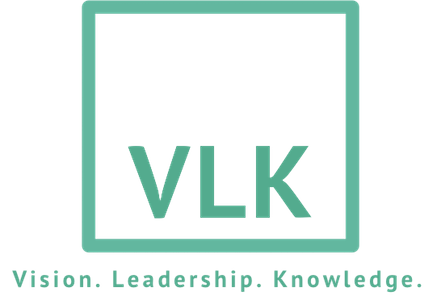I was driving home recently with my two little ones in the car, and we were talking about everything we were seeing out the windows along our route. I kept pointing things out ahead of me ("hey guys - look at those horses!", "wow - that's a cool tree") and one or both of them would say "Where, Mommy?" or "I don't see it!". After a few minutes of this, I was starting to get frustrated...why couldn't they see what I was seeing?! It was all right in front of us - surely it wasn't that hard for them to get it?
But of course they didn't. Because they had a totally different point of view than me. I could see straight out the windshield up ahead and their perspective from the back seat was more about what was rolling past them beside the car. And I realized that as my frustration grew, so did my negative reaction. The game we were playing was no longer fun and I just wanted to be done with it.
And then I had an "aha" moment...this is what we do at work with our co-workers, employees and leaders. It's what we do with our partner at home. With our kids. With our clients. With our service providers and healthcare providers and best friends and the guy who honks loudly at us on the street. All. The. Time. We get so wrapped up in our own perspective that we fail to understand that someone else's point of view may be totally different, not necessarily because they are being stubborn or don't want to agree with us...simply because they just see it differently. And then we shut down.
When their view out the window reveals trees and ours allows us to see the entire forest, of course we are going to have a difference in what we understand, how we understand it and what we want to do with that perspective.
The results of our varying points of view and our inability to recognize them can range from simple misunderstandings to full-blown breakdowns in relationships and productivity. Think about it. How many times did something not go the way you expected between you and another person? Is it possible that many of those times, it was less about the action, decision or words and more about not having the other person's view? The loss of a piece of business you were convinced you sold or a candidate turning down a competitive job offer might be based on perspective - theirs, not yours. Same with that project you were working on that fell apart in the final days or the conversation with your boss about your performance...different perspectives can cause more than just a little frustration.
So how do we break out of this cycle to become more open to someone else's viewpoint and ultimately to win the moment, the project, the day and the relationship?
Here are my 5 steps to improving your perspective in relationship to someone else's.
1. Start with a step back. Literally. When you start to feel frustrated that someone else isn't seeing what you're seeing, change your view. Step away from your current position to broaden your line of sight. Get up from your chair, back up a few steps or move sideways. You will immediately see more and in doing so, can change the focus of the conversation.
2. Acknowledge the difference. Put your current conversation on pause for a moment, and let the other person know that you think there is a difference in focus or point of view which should be discussed. Sometimes, the simple act of putting the thing that is creating discord on the table can resolve the frustration or disagreement.
3. Ask a question. Seek to understand what that other perspective involves and why it exists. Asking open-ended questions (why, what and how) not only lets someone know you care about their thoughts, but will also give you insight into what they are thinking and why.
4. Give a little. Acknowledging that the other person's perspective has value and that there is merit and possibility within it goes a long way to achieving agreement and ultimately, a positive outcome. Saying "I see what you mean" or "Ok, now I understand why that might work" is an engaging way to change the dynamic of the conversation. You aren't giving in, but you are creating a more open environment for collaboration.
5. Do something different. Sometimes the easiest way to resolve a difference in perspective is to change what you're doing that is creating the issue. Put the current topic aside and talk about something else, or agree to part ways and come back later. If it's something that needs resolution or action immediately, doing something different could mean just changing how you're talking about the situation - bring in another person to moderate or ask the individual you're interacting with if they're willing to move to different room.
At the end of the day, multiple perspectives have a ton of value. When we see things from different viewpoints, we gain new insight and obtain important details that we didn't previously have. We make others feel good as well, because we acknowledge that someone else's opinion or view matters. And, well, when we're all in a good mood, things are just likely to go better, aren't they?
That's what I'll be doing the next time I'm in the car with my littles...remembering that what they see is different from me, and having fun looking at things from their perspective. I have no doubt I'll be seeing a whole new world!

